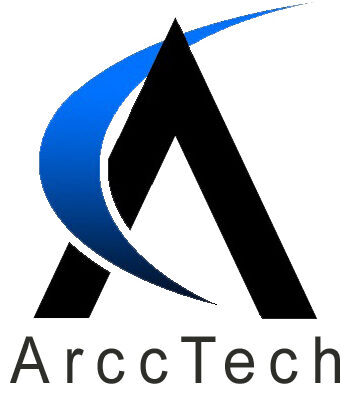Welcome to our Insights collection of articles on AI Safety, Ethics, and Regulation. This section delves into the pressing issues surrounding AI development, focusing on how ethical considerations, safety protocols, and regulatory frameworks play a crucial role in ensuring the responsible development and use of artificial intelligence in society. Our mission is to provide insightful perspectives on how emerging technologies, like Neural Consensus Networks™ (NCN) and SecureAI™, can address these challenges.
The articles listed below are currently in development. Stay tuned as we continue to release new content exploring the future of AI ethics, safety, and regulation.
AI Safety, Ethics & Regulation
Overview: This section highlights essential discussions on the ethical frameworks, safety measures, and regulations needed to ensure the responsible development of AI.
- AI Safety and Ethics: A Call for Global Standards
Analyzes the ethical concerns around AI, including fairness, transparency, bias, and accountability. It calls for unified global standards to ensure the safe development and deployment of AI. - Empowering Ethical AI: Integrating Neural Consensus Networks™ for Transparent, Trusted, and SecureAI™ Training
Explores how the NCN™ technology can ensure AI systems are trained with verified, immutable data, creating a safer, more transparent, and ethical AI framework. - SecureAI™: Aligning Artificial Intelligence with Constitutional Principles
Discusses how SecureAI™ ensures AI systems align with core societal principles—human rights, fairness, and accountability—by implementing blockchain technology and consensus-based validation. - De Jure Forensic Consensus: A New Framework for Safe and Secure AI
Introduces a new model for AI governance based on forensic consensus, helping align AI with foundational ethical and legal standards to ensure public trust and security. - The Future of AI Regulation: Balancing Innovation with Responsibility
Discusses how global AI regulations should strike a balance between fostering innovation and ensuring the ethical, secure deployment of AI systems.
AI Solutions for Ethical and Secure Development
Overview: This section includes articles that provide insight into ethical considerations, safety protocols, and regulatory solutions to ensure AI systems meet the highest standards of accountability and security.
- The Necessity of SecureAI™ Development
Highlights the urgent need for secure AI technologies that mitigate risks, ensure ethical deployment, and align with international standards. - Revolutionizing AI Safety with SecureAI™: A Blueprint for Global Trust
Examines how SecureAI™ could transform AI safety standards, ensuring security, transparency, and ethical AI development globally. - Global Standards for AI Development: A Unified Approach to SecureAI™
Calls for harmonized, global standards for the ethical and secure development of AI systems, emphasizing the role of SecureAI™ in enabling a globally trusted framework.
Neural Consensus Networks™ and Ethical AI
Overview: Articles in this category focus on how decentralized technologies like NCNs™ can revolutionize AI governance by ensuring transparency, fairness, and public involvement.
- The Call to Integrate NCN™ onto BCI Technology – Preserving Human Rights and Free Will through Transparency, Trust, and Immutability
Discusses the integration of Neural Consensus Networks™ with Brain-Computer Interface (BCI) technologies, ensuring the preservation of human rights and autonomy while promoting transparent and ethical AI systems. - Student-to-Computer Interface (SCI): Empowering Education through Brain-Computer Technology
This title highlights the intersection of education and BCI technology, focusing on the transformative potential of brain-computer interfaces in learning environments. - Reimagining AI Governance: From Decentralization to Transparency and Trust
Explores the future of AI governance, advocating for decentralized systems that empower individuals and communities, ensuring AI technologies serve societal values.
Industry Transformation through Ethical AI
Overview: This category covers how AI, blockchain, and decentralized technologies can drive transformation while ensuring ethical, transparent, and inclusive outcomes.
- Transforming Industries with NCN Technology: Empowering Ethical AI Integration
Discusses how NCNs™ can be applied across sectors like finance, healthcare, education, and public governance to drive innovation while adhering to ethical AI standards. - AI & Blockchain: Revolutionizing Industries for a Decentralized Future
Explores how AI combined with blockchain and decentralized systems can empower businesses and industries, ensuring accountability and ethical practices in a decentralized ecosystem.
Thought Leadership and AI Ethics
Overview: This section includes forward-thinking articles that explore the role of AI governance in shaping the future of technology and society.
- Reasserting Constitutional Integrity in the Age of AI
Examines how AI governance can be aligned with constitutional principles to ensure that technology serves the people and enhances democratic values. - AI Safety: Building a Future Based on Trust and Transparency
Discusses the need for robust AI safety protocols that integrate transparency, fairness, and societal values into the development and deployment of AI technologies.
Real-World Case Studies and Resources
Overview: This section provides practical case studies and whitepapers showcasing the real-world applications of SecureAI™ and NCN™ technologies in driving ethical, secure, and innovative AI solutions.
- Case Study: SecureAI™ in Action
A practical look at how SecureAI™ technology has been deployed in various sectors, ensuring safe, ethical, and transparent AI systems. - Whitepaper: The Future of NCN Technology in Global Ethical AI Governance
An in-depth exploration of how NCN technology can contribute to the global effort to establish safe and ethical AI systems, advocating for a decentralized, transparent framework.
